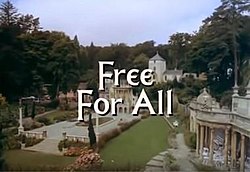
The Prisoner is a British television series created by Patrick McGoohan, with possible contributions from George Markstein. McGoohan portrays Number Six, an unnamed British intelligence agent who is abducted and imprisoned in a mysterious coastal village after resigning from his position. The allegorical plotlines of the series contain elements of science fiction, psychological drama, and spy fiction. It was produced by Everyman Films for distribution by Lew Grade's ITC Entertainment.
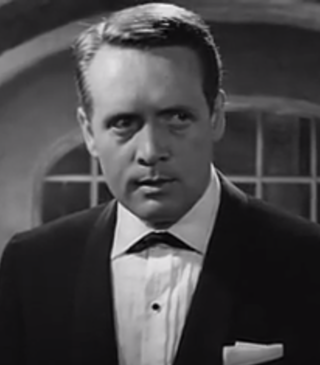
Patrick Joseph McGoohan was an Irish-American actor of film, television, and theatre. Born in New York City to Irish parents, he was raised in Ireland and England. He began his career in England during the 1950s and became well known for the titular role of secret agent John Drake in the ITC espionage programme Danger Man (1960–1968). He then created, produced, and starred as former British intelligence agent Number Six in the surrealistic ITV series The Prisoner (1967–1968).

"Arrival" is the first episode of the allegorical British science fiction TV series The Prisoner. It was written by George Markstein and David Tomblin, and directed by Don Chaffey. It was first broadcast in the UK on ITV on Friday 29 September 1967, and first aired in the United States on CBS on Saturday 1 June 1968.

"The Chimes of Big Ben" is an episode of the allegorical British science fiction TV series, The Prisoner. It was written by Vincent Tilsley and directed by Don Chaffey and fifth to be produced. It was the second episode to be broadcast in the UK on ITV on Friday 6 October 1967 and first aired in the United States on CBS on Saturday 8 June 1968.

"Fall Out" is the 17th and final episode of the allegorical British science fiction series The Prisoner. It was written and directed by Patrick McGoohan who also portrayed the incarcerated Number Six. The episode was first broadcast in the UK on ITV on Thursday 1 February 1968 and first aired in the United States on CBS on 21 September 1968.

Man in a Suitcase is a British television private eye thriller series produced by Lew Grade's ITC Entertainment. It originally aired in the United Kingdom on ITV from 27 September 1967 to 17 April 1968. ABC broadcast episodes of Man in a Suitcase in the United States from 3 May to 20 September 1968.
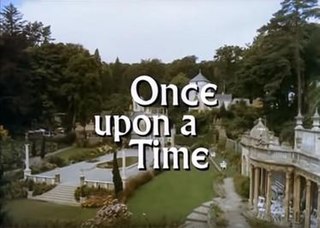
"Once Upon a Time" is the penultimate episode of the allegorical British science fiction TV series, The Prisoner. It was written and directed by Patrick McGoohan and sixth to be produced. It was first broadcast in the UK on ITV on Thursday 25 January 1968 and first aired in the United States on CBS on Saturday 14 September 1968.

"A. B. and C." is an episode of the allegorical British science fiction TV series The Prisoner. It was written by Anthony Skene and directed by Pat Jackson and eleventh produced. It was the third episode to be broadcast in the UK on ITV on Friday 13 October 1967 and first aired in the United States on CBS on Saturday 22 June 1968.

"The Schizoid Man" is an episode of the allegorical British science fiction TV series, The Prisoner. It was written by Terence Feely, directed by Pat Jackson and was the seventh produced. It was the fifth episode to be broadcast in the UK on ITV on Friday 27 October 1967 and first aired in the United States on CBS on Saturday 6 July 1968.

"Living in Harmony" is an episode of the allegorical British science fiction TV series, The Prisoner. It was written by David Tomblin and Ian L. Rakoff and directed by Tomblin and was the fifteenth produced. It was broadcast in the UK on ITV on Friday 29 December 1967 and was not screened in the United States on CBS during the initial network run.

"Hammer into Anvil" is an episode of the allegorical British science fiction TV series The Prisoner. Written by Roger Woddis and directed by Pat Jackson, it was the twelfth episode produced. It was the tenth episode to be broadcast in the UK on ITV on Friday 1 December 1967 and first aired in the United States on CBS on Saturday 31 August 1968.

"The Girl Who Was Death" is an episode of the allegorical British science fiction TV series, The Prisoner. It was written by Terence Feely and directed by David Tomblin and was the sixteenth produced. It was broadcast in the UK on ITV on Thursday 18 January 1968 and aired in the United States on CBS on 7 September 1968.
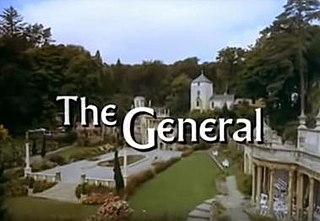
"The General" is an episode of the allegorical British science fiction TV series, The Prisoner. It was written by "Joshua Adam" – a pseudonym for Lewis Greifer – and directed by Peter Graham Scott. It was the tenth to be produced and was the sixth episode to be broadcast in the UK on ITV on Friday 3 November 1967. It first aired in the United States on CBS on Saturday 13 July 1968.

"Dance of the Dead" is an episode of the allegorical British science fiction TV series The Prisoner. It was written by Anthony Skene and directed by Don Chaffey and fourth to be produced. It was the eighth episode to be broadcast in the UK, on ITV on Friday 17 November 1967, and first aired in the United States on CBS on Saturday 27 July 1968.

"Checkmate" is an episode of the allegorical British science fiction TV series, The Prisoner. It was written by Gerald Kelsey and directed by Don Chaffey and third to be produced. It was the ninth episode to be broadcast in the UK on ITV on Friday 24 November 1967 and first aired in the United States on CBS on Saturday 17 August 1968.

"It's Your Funeral" is an episode of the allegorical British science fiction TV series, The Prisoner. It was written by Michael Cramoy and directed by Robert Asher and eighth produced. It was the eleventh episode to be broadcast in the UK on ITV on Friday 8 December 1967 and first aired in the United States on CBS on Saturday 10 August 1968.

"A Change of Mind" is an episode of the allegorical British science fiction TV series, The Prisoner. It was written by Roger Parkes and directed by Patrick McGoohan and ninth produced. It was the twelfth episode to be broadcast in the UK on ITV on Friday 15 December 1967 and first aired in the United States on CBS on Saturday 24 August 1968.
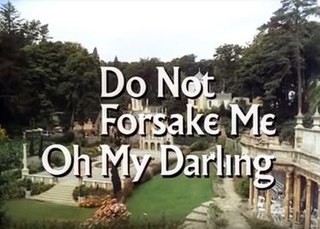
"Do Not Forsake Me Oh My Darling" is an episode of the allegorical British science fiction TV series, The Prisoner. It was written by Vincent Tilsley and directed by Pat Jackson and was the fourteenth produced. It was the thirteenth episode to be broadcast in the UK on ITV on Friday 22 December 1967 and first aired in the United States on CBS on Saturday 3 August 1968.
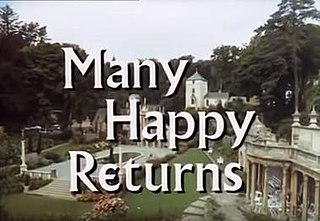
"Many Happy Returns" is an episode of the allegorical British science fiction TV series The Prisoner. It was written by Anthony Skene and directed by Patrick McGoohan. The thirteenth episode produced, it was the seventh episode to be broadcast in the UK on ITV on Friday 10 November 1967, and first aired in the United States on CBS on Saturday 20 July 1968.
